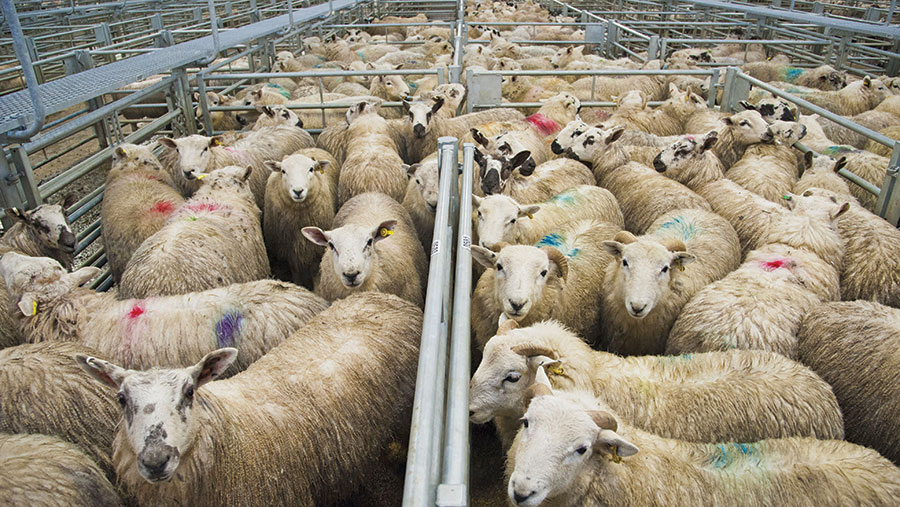Welsh mart will shut unless farmers obey Covid-19 rules
 © FLPA/Shutterstock
© FLPA/Shutterstock A Welsh mart operator is appealing to farmers to comply with the Covid-19 safety measures in place at the site – or risk its closure.
JJ Morris Auctioneers, which runs the mart at Whitland, said that following a visit by Trading Standards officials from Carmarthenshire County Council, it had been reminded “in no uncertain terms” of the authority’s enforcement powers.
“This included the very real threat of closure if the measures in place at the mart are not complied with,” the company posted on Facebook.
See also: What farmers need to know about livestock sales this year
The concern stems from a minority of farmers and dealers flouting the rules, including those relating to social distancing and the wearing of face coverings.
The county council said it would continue to make proactive visits to businesses across Carmarthenshire to offer advice and support and, if necessary, it would take “stronger action”.
“Marts are subject to the same Covid-19 regulations as other businesses – operators must ensure that they are providing a safe environment, and farmers and visitors must also ensure they behave responsibly and within the law,” said a spokesperson.
England
In Wales, Trading Standards departments have the powers to close marts if Covid regulations are not adhered to, but in England that power lies with the secretary of state.
In common with all markets currently operating, there are measures in place in the sale rings at Whitland to prevent contact, including markers indicating where people should stand.
Everyone, except those with a medical exemption, must wear face coverings when they are in the mart building.
The mart is now operating a strict drop-and-go policy for store cattle, calves, sheep and pigs, but with dairy cattle, vendors can remain until animals are sold, as long as they keep to specified areas.
JJ Morris said no other visitors were allowed on the mart premises.
“To ensure the continuation of the marts, Whitland mart must remain a business-only premises and is not open to the public until further notice,’’ the company added.
Play your part – LAA
Livestock Auctioneers Association (LAA) secretary Chris Dodds said everyone had a part to play in safeguarding the health of the nation, including members of the farming and abattoir communities who attend livestock marts.
“We need farmers to understand that these are not rules imposed by the LAA or individual marts – it is national governments asking us to help to get the virus under control.”
The 17-day “firebreak” lockdown in Wales had highlighted that the virus was spreading again, he added.
In Wales, the LAA is advising marts to, where possible, revert to the drop-and-go policy for fatstock that was in place during the first lockdown in March.
Scotland
Meanwhile, new rules came into force in Scotland on 19 October making it mandatory to wear face coverings in all enclosed areas at auction marts.
Market staff operating in livestock-handling areas are exempt due to the “material risk of harm” from handling livestock, said the auctioneers body, the Institute of Auctioneers and Appraisers in Scotland.
“This is due to the need to be in constant communication with others when handling livestock and face coverings present a risk of muffling speech and communication.”
Northern Ireland
In Northern Ireland, farmers are being discouraged from attending livestock markets, with the NI Executive issuing a message to farmers that markets are no longer a venue for a social gathering and asking that they attend only if it is “absolutely essential”.
“With many marts now showing sales live on the internet, sellers are encouraged to view their livestock being sold from the safety of their own farm,” it said.
